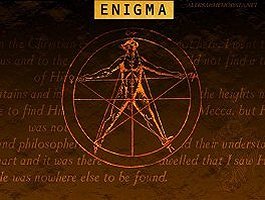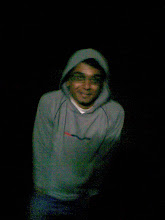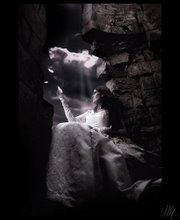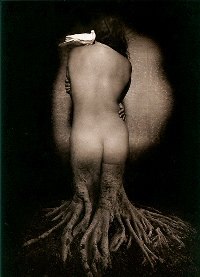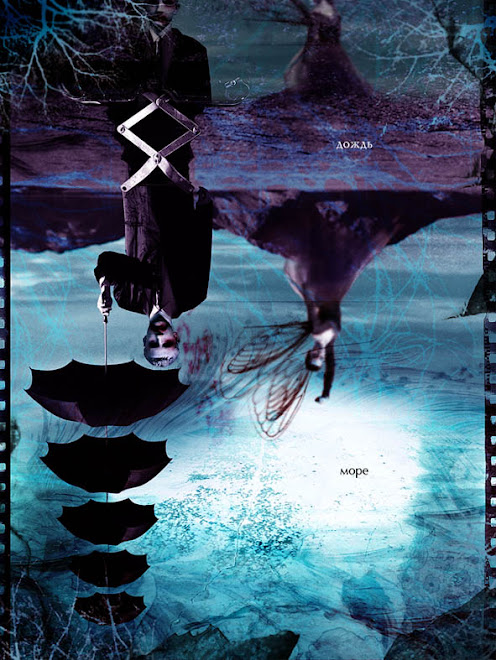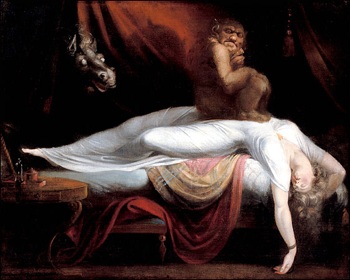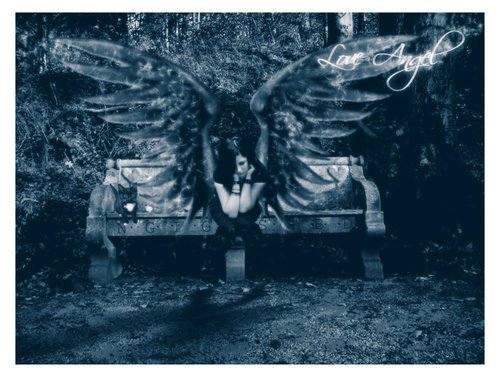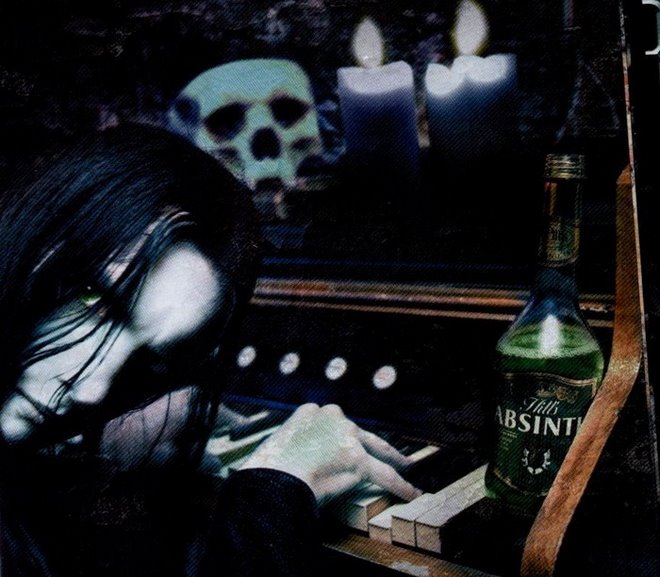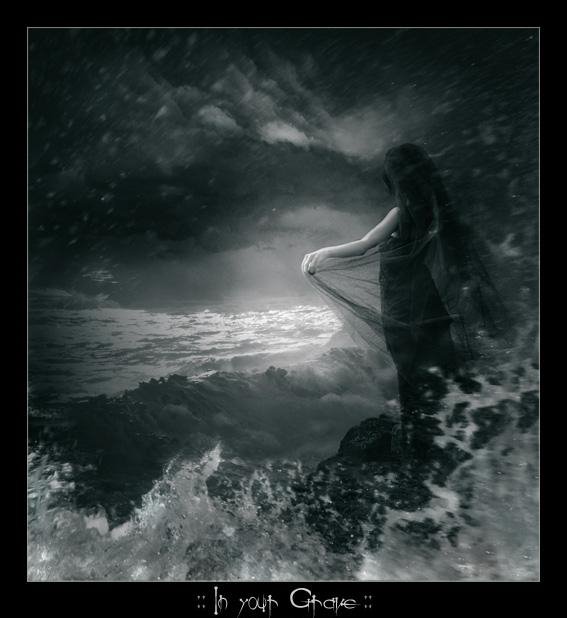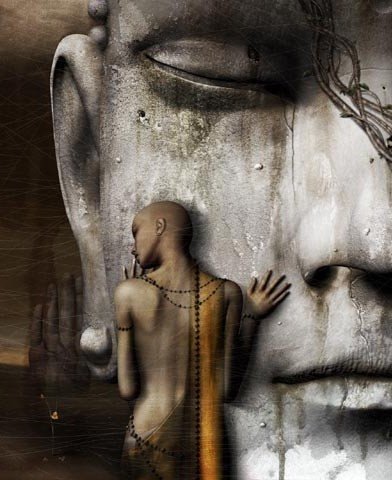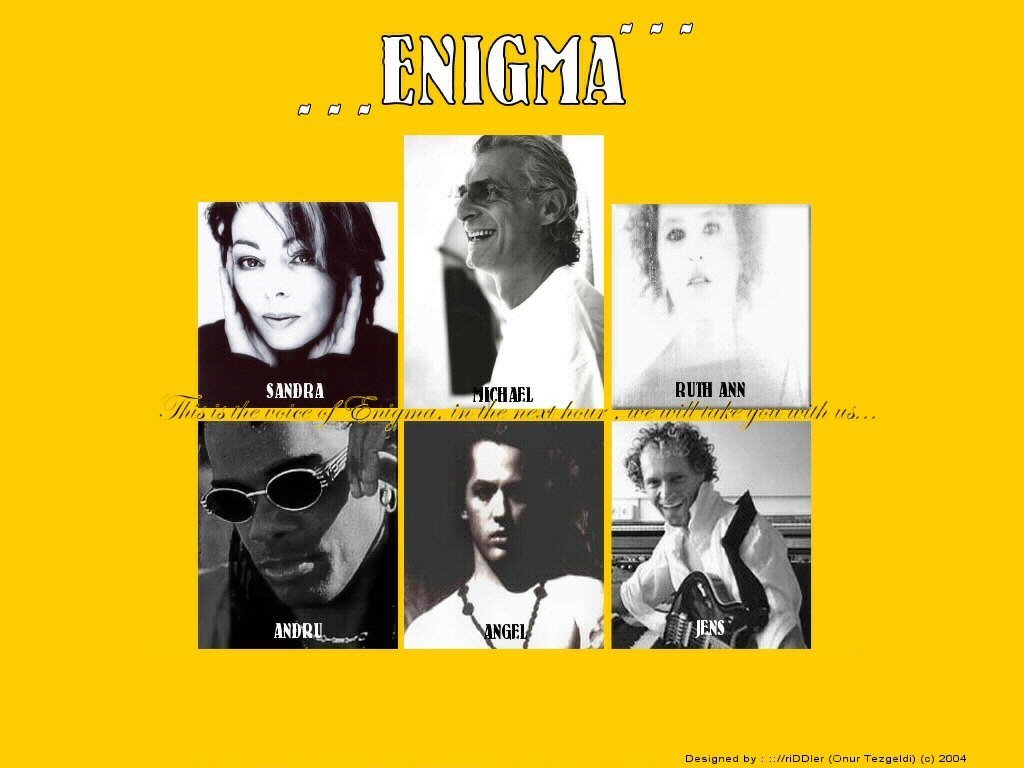Saturday, March 31, 2007
ENIGMA - PAST - REINCARNATION
__________________
The present is like a water drop, which makes a mommentary disturbance, and disappears॥
Thursday, March 15, 2007
The many people behind Enigma's music...
Michael Cretu (a.k.a. Curly M.C.): The man behind Enigma. Does all the music, production, and so forth. Performs many of the vocals, does most of the remixing, and arranges guest vocalists.
Frank Peterson (a.k.a. F. Gregorian): Assisted Cretu on E1, has not worked with Enigma since 1991 due to a falling-out between himself and Cretu.
Jens Gad: Assists Cretu with a lot of the engineering and music production, does most of the electric guitar solos, and remixes most of the club mixes on the singles.
Peter Cornelius: Also did some guitar solos on E2 and E3.
Sven Vath (a.k.a. D.F.F.): Remixed the Omen Mix of Principles of Lust.
Jam El Mar and Mark Spoon (a.k.a. Jam & Spoon)/Allstar Productions: Remixed the Jam & Spoon Remix of Carly's Song.
Orhan Terzi (a.k.a. DJ Quicksilver): Remixed The Roundabout, but this remix never saw the light of day.
Peter Ries: Assisted with the Judgement Day Club Mix of Gravity of Love.
W. Filz/La Danza Production: Remixed the Dark Vocal Club Mix of Gravity of Love.
Andre Tanneberger (a.k.a. ATB): Remixed the ATB Remix and ATB Radio Remix of Push the Limits. Also did a remix for Silence Must Be Heard, but nobody has heard this mix to date.
Enrique Muriel: Did the Radio-FX on E4.
The Voices
Michael Cretu: Does nearly all of the male vocals.
Sandra Cretu: Does most of the whispered female vocals. She is Cretu's wife.
Louisa Stanley: Does the spoken-word parts on the first three albums. Stanley was a radio plugger for Virgin Records.
Elisabeth Houghton: Fills Stanley's role on E4. She is a photographer for Virgin Records.
Andreas Harde (a.k.a. Andy Hard, Angel, Angel X): Sings on Return to Innocence. Cretu produced him.
Ruth-Ann Boyle: Lead singer of the UK group Olive. Sings on Gravity of Love and a few other songs from E4.
Andru Donalds: Jamaican reggae singer that is produced by Cretu. Sings on Modern Crusaders and a few other songs on E4.
The Lyrics
Michael Cretu: Writes most lyrics.
David Fairstein: Assisted Cretu on lyrics for E1, E2, and E3.
Frank Peterson: Worked on lyrics on The Voice & The Snake.
Nikolas Marten: Wrote the narrations for the Remember the Future DVD.
Wednesday, March 14, 2007
KNOW MORE ABOUT ENIGMA.. A BIOGRAPHY
With their 1991 hit "Sadeness," Enigma brought the new age fascination with Gregorian chants and old-world culture to the clubs; the resulting single was both unique and irresistible। The rest of the album followed that pattern successfully, although without quite matching the stunning success of the hit single। On their second album, 1994's Cross of Changes, some of the old-world elements remained, but the new age angle came to the forefront in a set of slick, radio-friendly dance-pop। Enigma 3: Le Roi Est Mort, Vive le Roi followed in 1996. A side project, Trance Atlantic Airwaves, issued The Energy of Sound in 1998. The fourth Enigma record, The Screen Behind the Mirror, followed in early 2000, and in 2003 Voyageur came out. Three years later, A Posteriori was released. ~ Stephen Thomas Erlewine, All Music Guide
Enigma
Screenshot from "Mea Culpa (Part II)"
Background information
Origin
Germany
Genre(s)
AmbientElectronicHouseNew AgeTrance
Years active
1990–present
Label(s)
Virgin Schallplatten (Germany)EMI (International)Charisma (United States)
Associatedacts
Deep Forest Delerium Enya Era Gregorian Mike Oldfield
Website
http://www.enigma.de/
Members
Michael Cretu (1990-present)
Former members
Sandra Cretu (1990-2003)Jens Gad (1997-2003)Peter Cornelius (1990-1994)David Fairstein (1990-1997)Frank Peterson (1990-1991)
Notable instrument(s)
Shakuhachi (synthesized)
Enigma is an electronic musical project started by Michael Cretu, his wife Sandra Cretu, David Fairstein and Frank Peterson in 1990. Michael is both the composer and the producer; Sandra often provides vocals on Enigma tracks. The pair have also worked together under the name Sandra. Six studio albums have been produced under the name of the project.
History
From the late 1970s onwards, Michael Cretu already had his own music career on his hands and apart from several collaboration efforts with several other musicians, he also contributed to his wife's albums. Before Enigma, he released a number of albums under his own name but they all were not particularly successful sales-wise. Cretu revealed in an interview that he believed that his ideas were soon running out at that point.
It was then that Cretu plotted the creation of a "New age-Dance", un-named yet, first single. Ditching his old habits and rules, he headed onto a different direction and in December 1990, he came up with the project's groundbreaking debut album, MCMXC a.D.. The album was Cretu's first commercial success through the single "Sadeness (Part I)", which juxtaposed Gregorian chants and sexual overtones over a dance beat that was highly peculiar to the ears of the public at that time.
Before the album was released, Cretu was cautious of the response towards the upcoming album, decided to forgo mentioning his and most of the personnel's real name and credited himself as Curly M.C., while the album sleeve contained little information about the background of the project, furthering the mystery about the creators of the album and leading to speculation whether Enigma was a band, a person or a group.
In 1993, Cretu was given an offer by producers to compose the full soundtrack of the motion picture Sliver but he was unable to accept the offer. Instead, he came up with "Carly's Song" and "Carly's Loneliness", which was used in the movie and credited in the motion picture soundtrack as well.
In the following year, The Cross of Changes was released and it received about the same, if not an even larger and better response from the public (it sold 6 million copies in a year). However, both of the albums also hitched up lawsuits over the issue of sampling from other music sources.
In 1996, Le Roi Est Mort, Vive Le Roi! (French for "The King is dead, long live the king!") was released. Cretu's idea was that this third album was the child of the previous two albums, and therefore included familiar elements of Gregorian chants and tribal chants in it. Though the album was as meticulously crafted by Cretu as the earlier two albums, it failed to achieve the same level of success that they enjoyed. As a result only two of the three singles originally slated were released, with the third one ("The Roundabout") being silently cancelled in 1998.
The 1999 release of The Screen Behind the Mirror included samples from Carl Orff's Carmina Burana on four tracks on the album. This time the Gregorian chants were toned down a lot, but still Shakuhachi flutes and other traditional Enigma signatures remain. Only "Gravity of Love" and "Push the Limits" were released as singles from the album. Ruth-Ann Boyle from the band Olive and also Andru Donalds mark their first appearance on the Enigma project.
In 2001, Cretu released a new single called "Turn Around" together with Love Sensuality Devotion: The Greatest Hits and Love Sensuality Devotion: The Remix Collection to end what he considers to be the first chapter of Enigma. A light show was held at the Munich Planetarium in conjunction of the release of the compilation albums.
2003's Voyageur was considered by many to be a total makeover for the project. Practically all of the prominent Enigma signature elements (the ethnic and/or Gregorian chants, the famous Shakuhachi flutes) were no longer in use for this album. As a result many fans had difficulty appreciating this new direction and sales were affected. From a statistical point of view, every Enigma studio album to date has sold roughly half of what the previous release did. Of course sales are only one indicator of the success of a musical project and, given some time to sink in, Voyageur proves to be a solid release that hints at new territories Cretu may explore in future projects.
On August 28, 2005, Enigma's management (Crocodile-Music.de) announced the release of the project's latest single, "Hello and Welcome". The single was originally slated to be released in October, however it was since moved to November 25, 2005 and finally saw release in Germany on March 10, 2006. The song will also be the walk-in music for the German boxer, Felix Sturm, and much like Voyageur shows little similarity to earlier Enigma works.
On September 26, 2006, Enigma's sixth album A Posteriori was released worldwide, containing a new version of "Hello and Welcome" and the new song "Goodbye Milky Way", which, despite earlier announcements, was and will not be released as single.
Music
Every Enigma album starts with the signature "Enigma horn" mixed into the introductory music. On the first four albums the first track tends to be a short piece lasting no more than 1-2 minutes, that serves to set the tone for the full length second piece which follows. On the two most recent Enigma albums, the first track has been of full length instead, still with the "Enigma horn" mixed into the beginning. Some Enigma albums also end with the same horn in the last track of the album, with the exception of The Cross Of Changes, Voyageur and A Posteriori.
The project is also notable for bringing Gregorian chants and tribal chants to the limelight, and popularising the usage of the Shakuhachi flute. Peculiar songs such as "The Voice and the Snake" and "Weightless" could be seen as experimental songs while instrumental-focused songs with no or minimal vocals were also found in all of the studio albums.
In all of Cretu's six studio albums, he has experimented on songs with reversed vocals, the most prominent ones being on the Le Roi Est Mort, Vive Le Roi! and The Screen Behind the Mirror albums. (The latter contains a brief experimental track consisting entirely of reversed vocals.) Reversed samples were somewhat hidden in Voyageur.
The content of the project's music differs in album to album, from sexuality in "Principles of Lust", love in "Gravity of Love", and innocence in "Return to Innocence". However, Cretu describes Enigma's music as sensual and not sexual.
Cretu is currently based in Ibiza, Spain. Until recently, he ran the A.R.T. Studios from his mansion in the Ibiza hills. He has now relocated to a purpose built mansion and has recently started installing a state-of-the-art recording studio inside one area of the building.
Cretu is under contract by Virgin Records to release a total of eight albums at a rate of one per three years. At the current rate, the last Enigma album will be released in 2012, with the earliest album being released in 1996.
Members
Michael Cretu and Sandra Cretu have been with the project since the beginning of the project. Other musicians who had previously worked alongside Cretu in the production of Enigma's studio albums are Jens Gad, David Fairstein, Peter Cornelius and Frank Peterson. The lates album A Posteriori was composed, produced and engineered completely by Michael Cretu.
Guest singers who had been influential in Enigma's songs are Angel X who provided vocals in "Return to Innocence", and both Ruth-Ann Boyle and Andru Donalds in The Screen Behind the Mirror and Voyageur. Louisa Stanley and Elisabeth Houghton have also lent their voices in "The Voice of Enigma" and "The Gate". The first one became the only person, not counting Cretu, to be credited on the sixth album, providing voices for Dancing With Mephisto and Goodbye Milky Way.
Influence
Cretu's first two studio albums also led to the creation and popularity of bands and musical groups that follow similar styles as Cretu. Era and Gregorian (led by former Enigma member Frank Peterson) are among some notable groups which capitalised songs which heavily incorporate Gregorian chants in their works. Enigma and Deep Forest are also to be considered by many to have brought the tribal chant genre to the ears of the public.
Critics and fans have noted down the probable influences if not similarities of Enigma and the works of other notable musicians. Some examples include Delerium's Semantic Spaces album, Mike Oldfield's albums, The Songs of Distant Earth and Tubular Bells III, all B-Tribe's albums and Sarah Brightman's cover of Hooverphonic's song, "Eden".
Tuesday, March 13, 2007
Enigma-the story behind the series!
Personal Information:
Band consists of Michael Cretu, born May 18, 1957, in Bucharest, Romania; married Sandra Lauer (a singer), 1988.
Education:
Studied classical music at Lyzeum No. 2 in Bucharest, 1965; studied music in Paris, France, 1968; attended Academy of Music in Frankfurt, Germany, 1975-78, and earned a degree in music.
Career:
Producer, composer, and arranger. As Michael Cretu, released first album, Legionare, Virgin, 1983; as Enigma, released debut album, MCMXC a.D., Virgin/Charisma,
1990 (Europe), 1991 (U.S.).Awards:Gold records for producing albums by Michael Oldfield and Sandra in Europe; platinum album for MCMXC a.D. in U.S.,
1991; platinum record for single "Sadeness Part I,"
1991; double-platinum album for MCMXC a.D. ,
1993;platinum album for The CROSS Of Changes,
1994; gold record for single "Return to Innocence," Virgin/Charisma,
1994; gold and/or platinum awards for MCMXC a.D. in 25 countries; Echo Award for most successful German production abroad,
1995, for The CROSS Of Changes.
Addresses:
Record company--Virgin Records, 338 North Foothill Rd., Beverly Hills, CA 90210;
or 1790 Broadway, 20th Floor, New York, NY 10019. Management--Nizzari Artist Management, 410 West 25th St., New York, NY 10001.
Michael Cretu, the man who is Enigma, declared his creative philosophy in a Virgin Records press release: "Old rules and habits have to be rejected and dismissed so that something new can be created." Even though Europeans were hip to Cretu's identity, early U.S. press information billed Enigma as the creation of a German producer who preferred to remain anonymous. "With Enigma," Cretu explained to Larry Flick in Billboard, " I have created a complete piece of music that I wanted to let stand alone. There is a sense of mystery in the music that I wanted to leave untouched by the perceptions and preconceived ideas that come with the past history of a producer or a songwriter." He continued, "Contrary to the usual record company philosophy, people are open-minded and starved for something unique. This is music that is different from any other available at the moment. I think people have responded to that."
Born on May 18, 1957, in Bucharest, Romania, Cretu pursued an early goal of becoming a concert pianist by studying classical music. In 1965 he attended Lyzeum No. 2--a college for young and gifted musical talents--with piano as his main subject, and he also studied for five months in 1968 in Paris, France. From 1975 to 1978 he attended the Academy of Music in Frankfurt, Germany, where he earned a degree in music. Deserting his goal of classical music, he claimed, "I started writing hits the day I sold my piano."
In 1980 Cretu won his first gold record for his production work. The artists with whom he has been associated include Hubert Kah, Peter Cornelius, Moti Special, and Sylvie Vartan. Cretu has also won gold record awards for producing albums by his wife, Euro-dance chanteuse Sandra, and multi-instrumentalist-composer Michael Oldfield. Since 1985 Cretu has produced seven albums for Sandra, including her first international hit single, "Maria Magdalena," which went to Number One in more than 30 countries. Cretu released his first solo album on Virgin, Legionare (which means legionnaires), in 1983, but his solo efforts before taking the name Enigma failed to earn U.S. distribution.
Inspired by such groups as the Art of Noise and Pink Floyd, Cretu assembled Enigma's debut album, MCMXC a.D. (the roman numeral representation of 1990), on an AudioFrame system at his home studio in Spain. MCMXC a.D. was released on December 3, 1990, in Europe through Virgin Germany and on February 12, 1991, in the U.S. through Virgin/Charisma. The LP eventually sold more than 12 million units worldwide, and won gold and/or platinum awards in 25 countries. In the United States MCMXC a.D. went platinum by the first week in May of 1991 and earned double-platinum status by the fall of 1993. Cretu told Alan di Perna of Keyboard, "I conceived of the whole album as a single song. The words and sounds are like flashlight beams. They don't show you everything. You have to look at what's between the lines."
A mixture of sixth-century Gregorian chants, bewitching French whispers--provided by Cretu's wife, Sandra --and hypnotic, ethereal music set to intoxicating dance rhythms, MCMXC a.D. is definitely more a cathartic aural journey than a collection of individual songs. The video import of MCMXC a.D. is a gorgeous swirl of images seamlessly interpreting the entire album. Even so, "Sadeness Part I," a song marked by its inclusion of Gregorian chant, was destined to become the album's runaway single. "The great misconception of people who have only heard 'Sadeness' is that the whole album is filled with chanting. This is a complete piece of work with many different levels and sounds. 'Sadeness' is only one piece of the puzzle," Cretu explained to Billboard's Flick.The French lyrics in "Sadeness Part I" are actually a dark homage to the Marquis de Sade, an eighteenth-century erotic novel writer from France from whose name the word sadism comes. In analyzing this element of the debut Enigma album, Vince Aletti of the Village Voice stated, "Cretu isn't celebrating the notorious Marquis ... but his mere presence in this context is a provocation, surely a deliberate and delicious one. Sade reserved his fiercest contempt and some of his most exquisite literary tortures for the pious and the prim, so even if he remains offstage here, the writer is a devilishly successful device. Cretu uses him to introduce questions of virtue and vice, faith and sacrilege, love and lust."Cretu related to Keyboard's di Perna, "I wanted to use things that there are questions about, that are mysterious. You don't have to go too far to read all kinds of accusations about the Catholic Church--scandals, inquisitions, and wars--and you wonder how you can reconcile this with the idea that the Church is supposed to stand for universal love. But at the same time, I've been told that the Marquis de Sade was a very religious man, that he wrote what he wrote as a revenge against certain pious people who were hypocrites. So again, there are questions, mysteries."
The Marquis was apparently not the only one out for revenge. As Cretu revealed to Michael Azerrad of Rolling Stone, "[MCMXC a.D.] was like revenge against everything I was hearing. I didn't want to write songs, I wanted to write moods." When Azerrad drew a comparison to the way pop icons Madonna and Prince explored sexuality, Cretureplied, "What Madonna and Prince did is pure marketing--it's predicated on causing scandal. It's not a sexual music that I did. It's a sensual music. And there's a big difference."
Some radio stations in Europe with a large Catholic audience could not see that difference. They banned "Sadeness Part I," considering it "pure blasphemy." Dutch national radio network TROS actually received three bomb threats from listeners said to be shocked by what they heard when the record was proclaimed single of the week--prompting Cretu to issue a statement refuting rumors about satanic material in the Gregorian passages and insisting he had no desire to offend "any public religious beliefs." Himself an atheist, Cretu told Azerrad of Rolling Stone, "The institution of the Church doesn't really fit with our times. I believe in destiny, which is a much more powerful belief."
In terms of record sales, Cretu's beliefs were apparently embraced by many listeners. By January of 1991 "Sadeness Part I" had reached Number One in seven European countries: Germany (where it eventually became Germany's biggest-selling single ever), Belgium, the Netherlands, Switzerland, Austria, the United Kingdom, and Greece. The record would ultimately attain the Number One position in 15 countries. In the American market, "Sadeness Part I" broke into Billboard's Hot 100 in February of 1991, and by April the record was in the Top Five after 11 weeks at Number One on the combined European charts.
Peaking at Number Two on the U.S. pop charts, "Sadeness Part I" became a certified platinum single.Although Enigma was perhaps singularly responsible for boosting interest in Gregorian chant music worldwide, there was a price to pay--literally. In August of 1991 Munich-based choir Kapelle Antiqua demanded a written apology in addition to financial compensation when the choir, according to Ellie Weinert in Billboard, "recognized its recordings of Gregorian choral works on Enigma tracks. The group sued for damages, claiming Cretu had infringed upon its 'right of personality' by distorting the records sampled on the 'Sadeness Part I' and 'Mea Culpa' album tracks and singles." Cretu and Virgin Germany agreed to pay compensation for samples used on MCMXC a.D. and settled out of court with Polydor and BMG/Ariola, which represented the German choir, for an undisclosed sum.
In the end Virgin acquired authorization for the retrospective use of the Polydor and BMG/Ariola masters.In 1993 film producer Robert Evans asked Cretu to write the title song for the motion picture Sliver. The result was "Carly's Song" and "Carly's Loneliness," both of which appeared as "Age of Loneliness" on Enigma's next album, The CROSS Of Changes. Other Enigma soundtrack credits include songs from MCMXC a.D. used in the films Single White Female and Boxing Helena.
In May of 1991 Cretu told Larry Flick of Billboard, "It is my plan for Enigma to be an outlet for music that boldly strays away from the norm of pop music. I have several ideas for the next album that I think are fascinating. Part of the fun of projects such as these is watching how all of the various elements come together in the studio."
Though it was released in Europe in December of 1993, it was not until February 8, 1994, that Enigma's second album, The CROSS Of Changes, was released in the United States. Cretu's belief that "music is part of my soul--and this ultimately decides everything" perhaps best explains the three years it took him to produce his second album.Reviewing The CROSS Of Changes for Pulse!, Michael Freedberg stated, "Cretu's Wagnerian symphonics [in the manner of composer Richard Wagner], crisscrossed by sleazy beats and train-like machinations, feel enough like midnight to make you dance across the Seine [River in France] with your headset on."Evidently others were dancing with him. The CROSS Of Changes went platinum in the United States just seven weeks after its release, and "Return to Innocence" reached gold status one month later, in July of 1994. In Keyboard Cretu summed up perhaps a major reason for Enigma's success: "Enigma is a vehicle for doing things outside the rules that you normally have to follow when you make a dance record." He went on to say, "Basically, I will keep on doing Enigma records until I run out of new ideas. Then I'll move on to something else."
Selected Discography:
MCMXC a.D., Virgin/Charisma, 1990.
The CROSS Of Changes, Virgin/Charisma, 1993.
Selected Discography:Also contributed songs to soundtrack Sliver, Virgin, 1993, and others.
Sources:
Billboard, January 26, 1991; February 16, 1991; May 18, 1991; September 14, 1991; February 19, 1994.
Entertainment Weekly, October 14, 1994.
Keyboard, September 1991.
Melody Maker, January 12, 1991. Pulse!, June 1994.
Rolling Stone, May 2, 1991; May 16, 1991. Village Voice, April 16, 1991.Additional Sources: Additional information for this profile was obtained from Virgin Records America publicity materials, 1993, and Nizzari Artist Management, 1995.~~ Lazae Laspina
